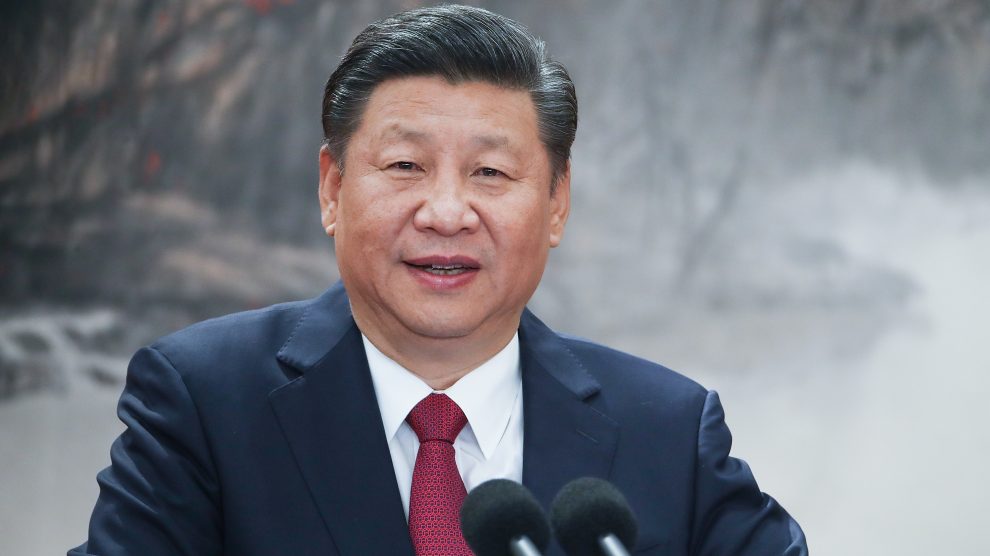Central Asian leaders recently convened in Xi’an to announce an unprecedented number of agreements with China. Deepening ties with Beijing come as other international actors have failed to deliver on investment in the region on the same scale as China.
From the perspective of many Central Asian officials, geography and history are destiny. Sandwiched between sanctioned Russia, the mountains of unstable Afghanistan, and China to the east, it is understandable that the landlocked countries of Central Asia would seek close ties with Beijing.
After all, the Silk Road that brought centuries of prosperity to Central Asia ran between Europe and China.
If globalisation ran through Central Asia historically, why should now be any different?
- The last word: On China, leadership will come from Central and Eastern Europe
- Explainer: What is Hungary doing in the Organisation of Turkic States?
- Postcards from the Silk Road: In search of Uzbekistan’s best plov
Indeed, Chinese president Xi Jinping announced the monumental Belt and Road Initiative (BRI) in Kazakhstan in 2013 as the Silk Road Economic Belt—a belt of overland transit infrastructure through Central Asia—and the 21st Century Maritime Silk Road. A decade and trillions of US dollars of loans and construction later, 149 countries participate in the ambitious project to increase trade infrastructure and global trade through China.
There are also practical security concerns. Beijing offers autocrats and elected leaders around the world alike the promise that it will stay out of their internal affairs as long as they in turn stay out of China’s—specifically on sensitive questions concerning Tibet, Taiwan, Hong Kong, and Xinjiang. Although many in Central Asia view these terms as acceptable, there is no practical alternative for the small, landlocked nations than to stay on good terms with their infinitely larger neighbour.
Leaders of the five Central Asian states of Kazakhstan, Uzbekistan, Kyrgyzstan, Tajikistan, and Turkmenistan attended a summit in China’s imperial capital of Xi’an from May 18 to 19 – the first time China simultaneously engaged with the entire region outside of the format of meetings for multilateral organisations like the Shanghai Cooperation Organisation.
Support for One China
The summit concluded with 82 official deliverables and agreements—a record for any format of Beijing’s engagement with the region. Chinese tourism in the region is set to increase as visa requirements are waived, and officials announced new media, health, and climate partnerships.
Of particular interest to Western observers were pledges by each Central Asian leader in support of Beijing’s One-China policy that the People’s Republic of China is the sole legal government representing the whole of China and that Taiwan is “an inalienable part of China’s territory”.
Joint statements made by each Central Asian country and China reiterated opposition to Taiwanese independence or any official exchanges with island and firm support for “all efforts made by the Chinese government to realise national reunification”.
In its joint declaration with China, Kyrgyzstan also stated its support for Beijing’s “measures to maintain security, stability and development in Xinjiang” while condemning “the politicisation and instrumentalisation of human rights issues”. Kyrgyzstan and China also agreed to increase cooperation in intelligence sharing, border control, and suspect repatriation while jointly combatting terrorism, extremism and separatism including the “East Turkistan terrorist forces”.
Beijing has used counterterrorism against the East Turkestan Islamic Movement (ETIM) as pretext to launch a campaign of mass surveillance and incarceration of Uyghurs and other Turkic minorities in its northwestern province of Xinjiang, which borders Kyrgyzstan.
The United States Department of State said in 2020 that, “For more than a decade, there has been no credible evidence that ETIM continues to exist” and called Beijing’s actions a “genocide”. As tensions rise between the US and China, Washington has sought international support for Taiwan—as many see its invasion by Beijing as likely in coming years—and condemnation for Beijing’s human rights abuses in Xinjiang.
Although Central Asian leaders speak of “multi-vector” foreign policy to balance favourable relations with Russia, China, and the West, the joint statements released in Xi’an indicate unambiguous support for Beijing’s position on key issues.

Infrastructure
Beijing, however, is prepared to provide far more investment and infrastructure for Central Asia than the West has ever seriously put on the table. It announced substantial new investment at the Xi’an summit and recently agreed to a financing agreement for a long-awaited China-Kyrgyzstan-Uzbekistan (CKU) railway that would open another rail route to Europe bypassing sanctioned Russia.
As Uzbekistan seeks to engage with Taliban-controlled Afghanistan on regional connectivity issues, China expressed support for its efforts to build a trans-Afghan railroad to Pakistan in the Xi’an summit joint statement.
Western economic engagement with Central Asia is dominated by interest in hydrocarbon, uranium, and critical mineral extraction, with only modest investments in other sectors, and its engagement with the region on security issues is decreasing after the US withdrawal from Afghanistan.
As Central Asia’s relations with China continue to deepen and ties with Russia remain strong, it is up to the West to determine if it is interested in increasing its engagement.
Unlike many news and information platforms, Emerging Europe is free to read, and always will be. There is no paywall here. We are independent, not affiliated with nor representing any political party or business organisation. We want the very best for emerging Europe, nothing more, nothing less. Your support will help us continue to spread the word about this amazing region.
You can contribute here. Thank you.


